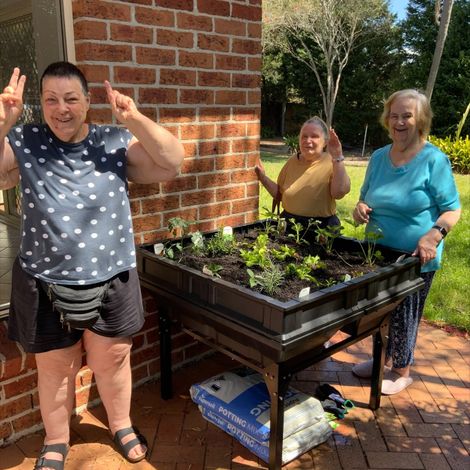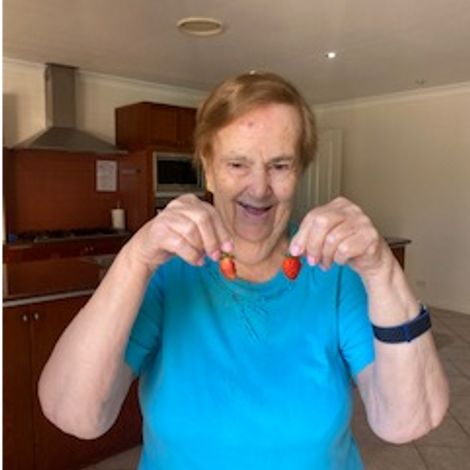Vegepods for Disability Accommodation


The Vegepods for Disability Accommodation is our awesome project!
This project is designed to empower the lives of people with disability. The installation of sensory garden Vegepods in Interaction housing will give our participants an accessible, mindfulness-based, sensory activity that promotes mental wellbeing and interpersonal relationships. A planned COVID-safe event (Planting Party) to celebrate the new garden will also take place to increase socialisation and ease our participants back into post-lockdown life.
The aims of the project are to: install two Vegepods in two separate Interaction Disability accommodation properties; increase social interaction between housemates in housing; increase outdoor and physical activity; provide sensory and mindfulness experiences to participants with intellectual disability; increase mental and emotional wellbeing of participants; increase a sense of accomplishment by providing achievable goals; improve gardening skills; and host a COVID-safe Planting Party to celebrate the Vegepods.
These aims are built on research that outlines the benefits of sensory activities, such as decreased stress and blood pressure, and improved relaxation, focus and mental wellbeing (Chan et al., 2005). Gardening is especially effective in disability homes (Same et al., 2016) - illustrating the potential benefits of this project in our participant houses.
Over 50 percent of people with disability also live with mental illness (Reppermund et al., 2019). Despite this, the majority of national and state policy doesn't recognise or address the mental health of people with disability (Reppermund et al., 2019). Additionally, the current COVID-19 pandemic has exacerbated the mental health needs of vulnerable groups (Okoro et al., 2021).
Our project aims to bridge this gap to ensure that our participants are provided with supports that help them thrive.
Interaction is a non-profit that empowers people with intellectual disability. We were founded in 1979 by parents with a plan for their children to integrate into the community. We’ve expanded their vision and now work with over 550 individuals and families. We provide independent supports, support coordination, accommodation, behaviour support, and skills development. From our humble beginnings, to our transition into the NDIS in 2015, we remain committed to empowering people with disability.
The last two years have taught us that community is more important than ever. With the known mental health impacts of COVID-19 and the vulnerability of intellectually disabled communities for mental illness – activities that promote wellbeing are vital to this high-risk population. What is more awesome than improving the lives of the most vulnerable members of the Sydney community?!